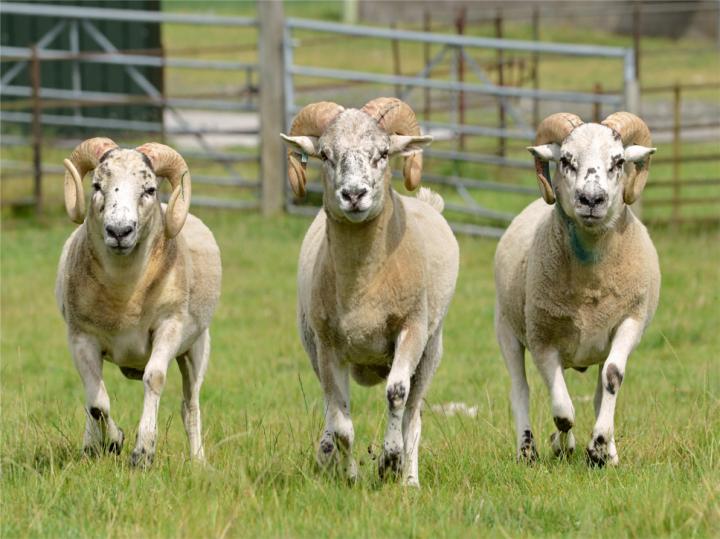Gene map to aid studies of key traits in sheep
Genetic code insights pave the way to more accurate research into traits of interest in sheep, such as health and resilience.

Scientists have built a map of the location of all the genes in the genetic code of sheep, in a development that could help to understand the genetic basis of traits linked to health and food production.
Their discoveries help improve the existing high-quality map of sheep DNA – with one of the highest resolutions in a livestock species to date – which can be freely used for studies of sheep health, welfare, resilience, nutrition and productivity.
Outcomes from the research, which included analysis of multiple tissues from all organs, can be used to investigate how specific regions of the genetic makeup of sheep affect their physical and physiological characteristics.
Important species
The map was built from a single sheep from the Rambouillet breed, which are known for their high quality fleece and for being able to live in harsh conditions.
The study, led by Roslin scientists within the Centre for Tropical Livestock Genetics and Health, has been conducted in collaboration with an international team, as part of the Ovine Functional Annotation of Animal Genomes (FAANG) project.
Scientists identified points in the genome where the process of switching on genes starts – known as transcription start sites.
They used a technique called ‘Cap Analysis Gene Expression’ (CAGE) sequencing to identify the start sites of the vast majority of genes in the Rambouillet reference genome, which was generated by scientists from Baylor College of Medicine in the US, and is a database that is representative of all the genes and genetic code for sheep.
Sheep are hugely important farmed animals, providing a key global source of meat and fibre. The high-resolution annotation of transcription start sites in the genome that we have generated for the Ovine FAANG project will give scientists a better map of the genome upon which to base their studies.
This research identifies the location and regulatory elements of genes that control economically important traits like health, meat and wool quality in sheep. It is this type of information that is essential to help breeding programmes select and predict traits to improve the sustainability and productivity of this globally important species.
The study is published in Frontiers in Genetics and was funded by the US Department of Agriculture’s National Institute of Food and Agriculture (USDA NIFA).
** The Roslin Institute receives strategic investment funding from the Biotechnology and Biological Sciences Research Council and it is part of the University of Edinburgh’s Royal (Dick) School of Veterinary Studies. **
Related links
Sheep study lends insight into gene variation
Atlas of cattle genes sheds light on key traits


